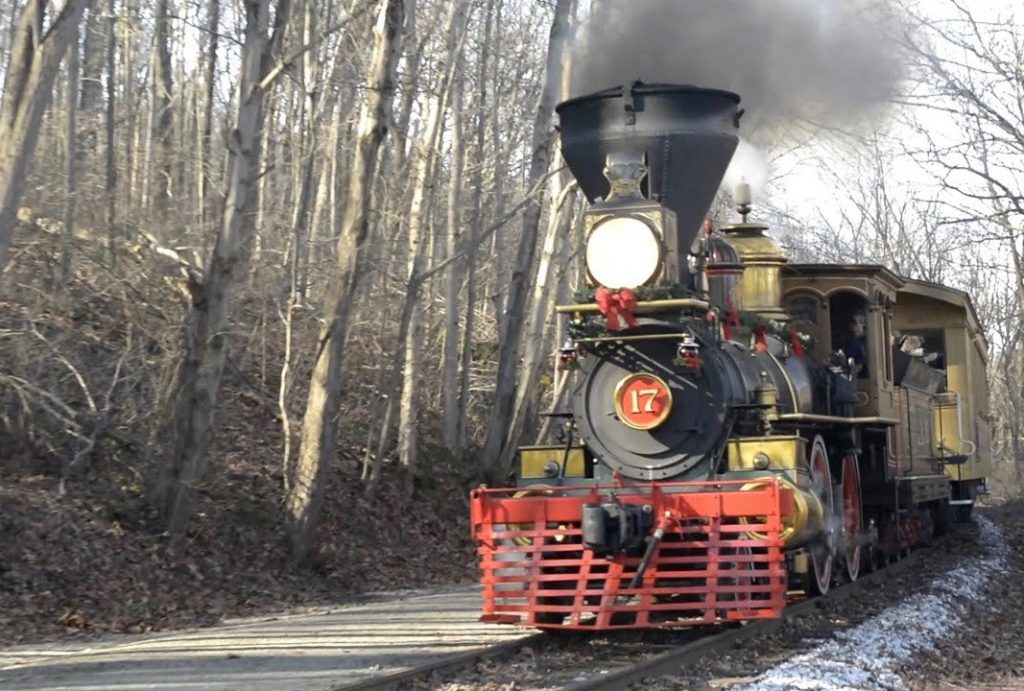Weekly Whiteman: To a Locomotive in Winter
 Thee for my recitative,
Thee for my recitative,
Thee in the driving storm even as now, the snow, the winter-day declining,
Thee in thy panoply, thy measur’d dual throbbing and thy beat convulsive,
Thy black cylindric body, golden brass, and silvery steel,
Thy ponderous side-bars, parallel and connecting rods, gyrating, shuttling at thy sides,
Thy metrical, now swelling pant and roar, now tapering in the distance,
Thy great protruding head-light fix’d in front,
Thy long, pale, floating vapor-pennants, tinged with delicate purple,
The dense and murky clouds out-belching from thy smoke-stack,
Thy knitted frame, thy springs and valves, the tremulous twinkle of thy wheels,
Thy train of cars behind, obedient, merrily following,
Through gale or calm, now swift, now slack, yet steadily careering;
Type of the modern—emblem of motion and power—pulse of the continent,
For once come serve the Muse and merge in verse, even as here I see thee,
With storm and buffeting gusts of wind and falling snow,
By day thy warning ringing bell to sound its notes,
By night thy silent signal lamps to swing.
Fierce-throated beauty!
Roll through my chant with all thy lawless music, thy swinging lamps at night,
Thy madly-whistled laughter, echoing, rumbling like an earthquake, rousing all,
Law of thyself complete, thine own track firmly holding,
(No sweetness debonair of tearful harp or glib piano thine,)
Thy trills of shrieks by rocks and hills return’d,
Launch’d o’er the prairies wide, across the lakes,
To the free skies unpent and glad and strong.


My father spent his immediate post-WWII years as a fireman on the old Atchison Topeka and Santa Fe railroad. As someone who wrote poetry about the robust lives working class people had, he would have loved that poem. I wonder if he knew it. Or if in the mid-20th century Whitman was as controversial as he was in earlier decades, so that no self respecting Arizona cowboy would have been caught dead reading (much less enjoying) that sort of thing, even if it did celebrate trains.
One of the reasons I am doing this series is to introduce–or re-introduce–folks to a wonderful poet whose words seem as timely now as they did in the 1800s. If I may be pardoned for this–maybe those AZ cowboys should have been on Brokeback Mountain–sorry.